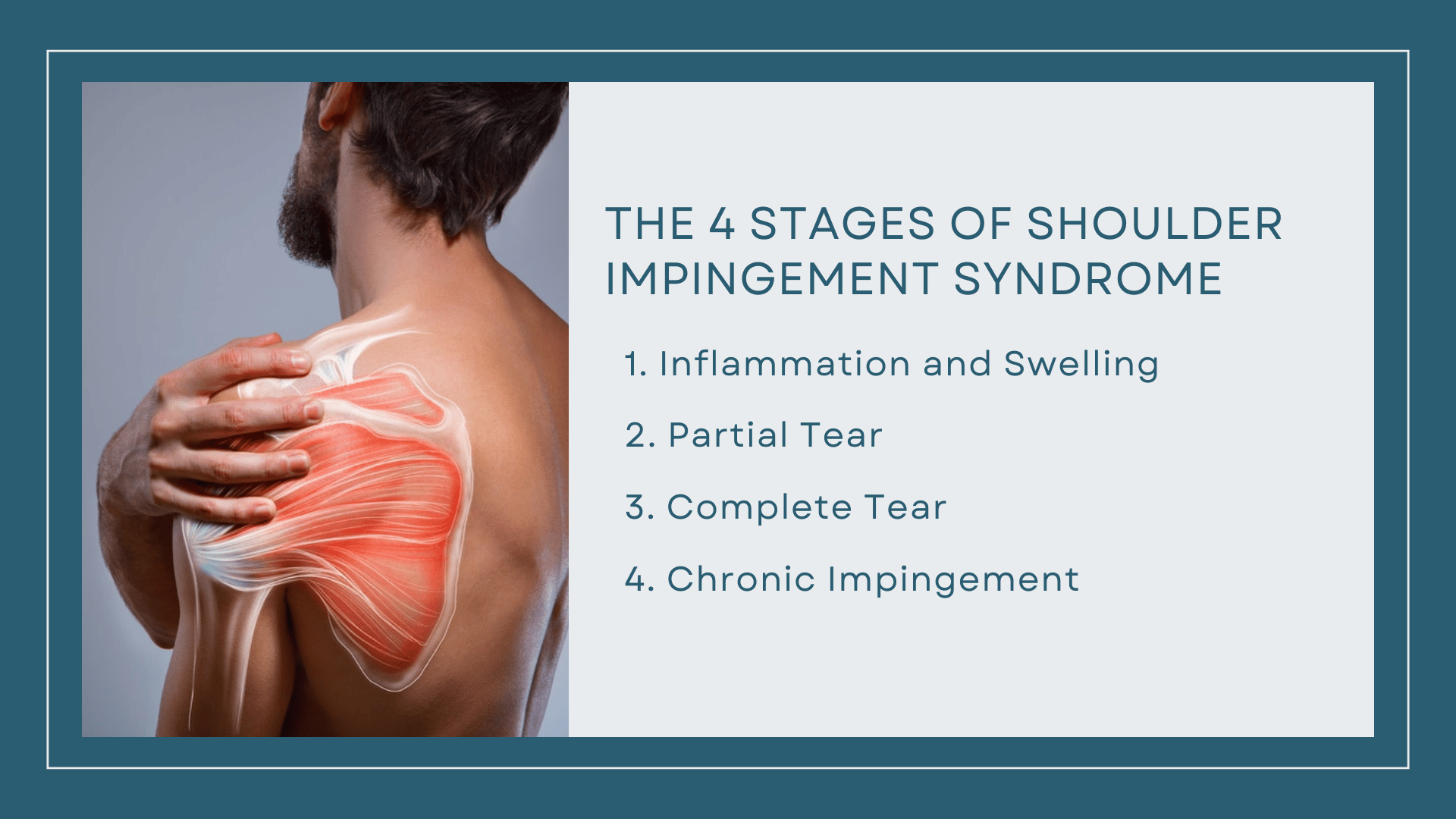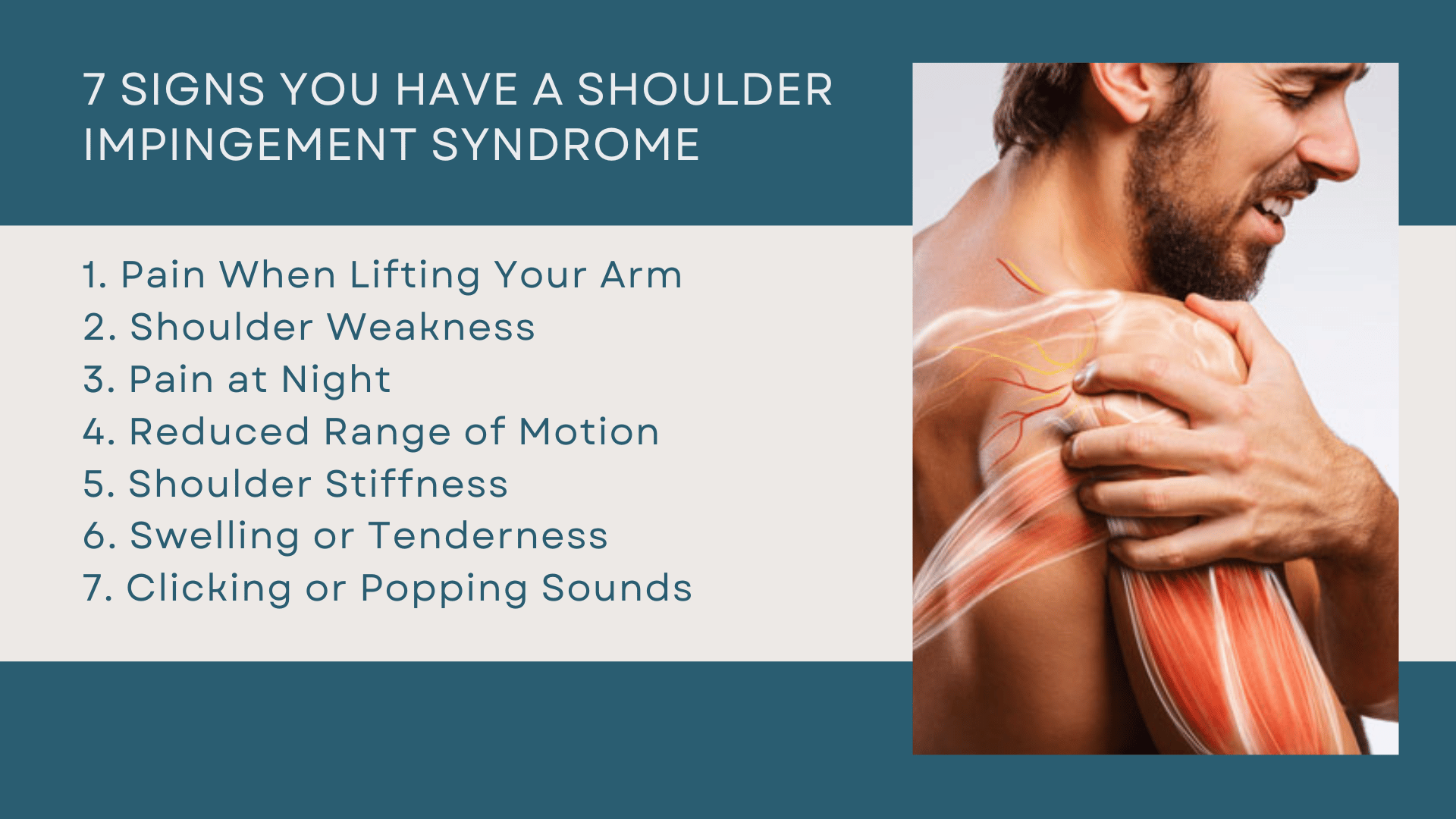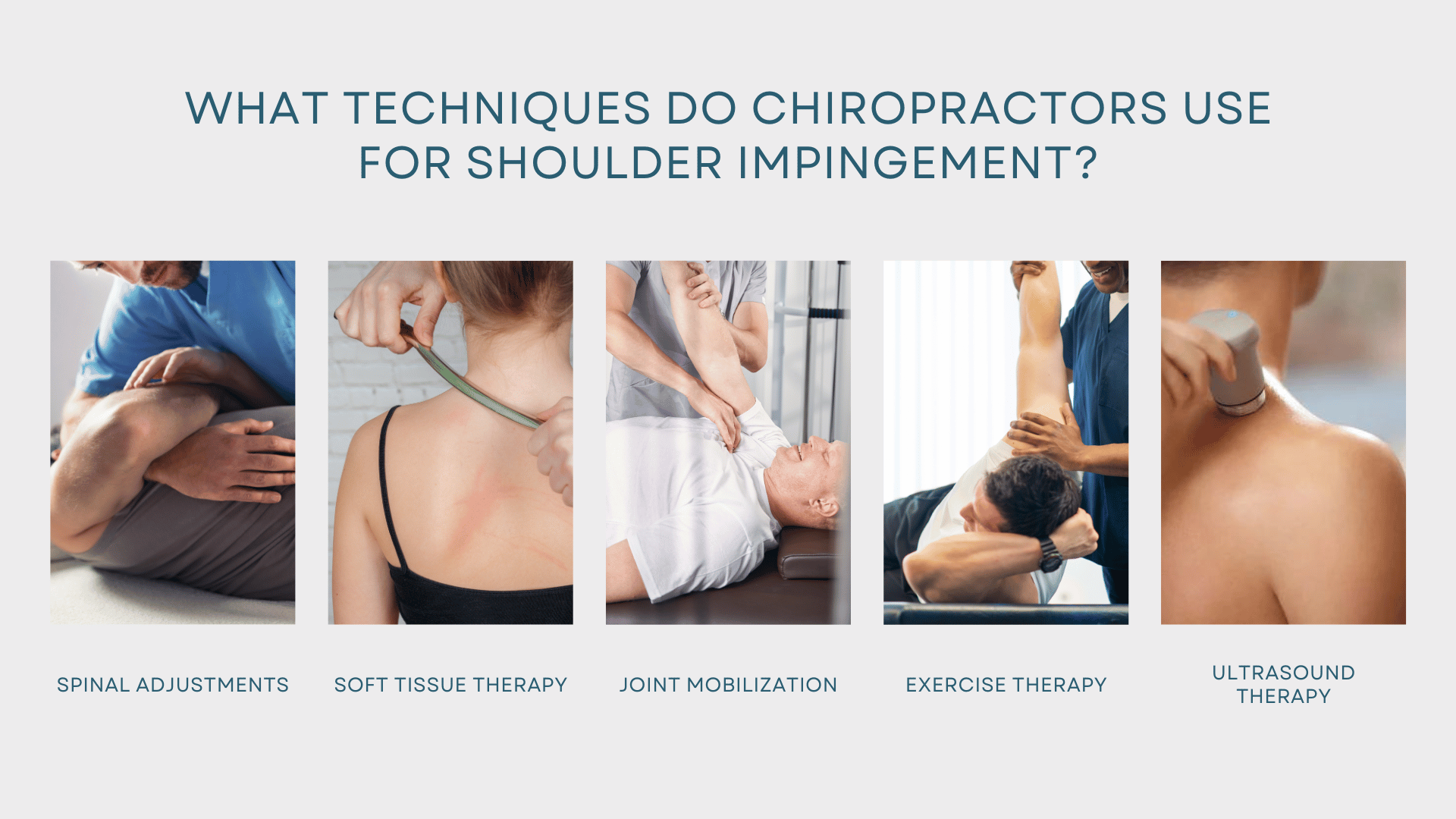Shoulder impingement syndrome can be a real pain—literally.
One common culprit is shoulder impingement, a condition in which the shoulder’s tendons are pinched during movements. But can chiropractors help? Absolutely! Chiropractic care offers noninvasive, drug-free treatments that can alleviate pain and restore function.
We’ll cover the stages and symptoms of rotator cuff injuries and discuss chiropractic techniques, recovery times, and benefits, helping you decide if it’s the right path for your recovery.
Whether you’re an athlete looking to get back in the game or someone dealing with everyday discomfort, understanding your treatment options is crucial.
The 4 Stages of Shoulder Impingement Syndrome

Shoulder impingement syndrome is a common cause of shoulder pain, often affecting individuals engaged in overhead activities or sports.
This condition progresses through four distinct stages, each with increasing severity. Recognizing these early stages is crucial for seeking appropriate treatment and preventing long-term damage to the shoulder joint and its associated structures, such as the rotator cuff tendons.
- Inflammation and Swelling: The first stage is characterized by inflammation and swelling of the rotator cuff tendons and other soft tissue structures within the subacromial space. This is often due to overuse or repetitive motion irritating these tissues.
- Partial Tear: If the inflammation is not addressed, it can lead to partial tears in the rotator cuff tendons. The continued stress and irritation can weaken the tendons, causing them to fray. Patients may experience increased pain, particularly with movements involving internal rotation or lifting the arm above shoulder level. A physical exam and imaging tests, such as magnetic resonance imaging (MRI), can help diagnose the extent of the damage.
- Complete Tear: Without proper treatment, partial tears can progress to complete tears. At this stage, the affected shoulder may become significantly weak, making it challenging to perform daily activities. The pain is often more pronounced and persistent. Surgical treatment, such as subacromial decompression or rotator cuff repair, may be necessary to restore function and relieve pain.
- Chronic Impingement: The final stage involves chronic impingement, where the rotator cuff muscles and other soft tissues have sustained considerable damage. This can result in ongoing pain, severe restriction of movement, and a significant loss of shoulder function. Chronic impingement may also lead to degenerative changes in the shoulder joint. Persistent symptoms often require a combination of surgical and non-surgical interventions, including chiropractic care and physical therapy, to manage pain and improve the range of motion.
7 Signs You Have a Shoulder Impingement Syndrome

- Pain When Lifting Your Arm: If lifting your arm overhead causes a sharp pain or a dull ache, it’s a key sign of impingement.
- Shoulder Weakness: Finding it hard to lift things or feeling like your shoulder is weak can be another clue.
- Pain at Night: It is common for people with this condition to wake up because their shoulder hurts, especially when lying on it.
- Reduced Range of Motion: If moving your shoulder is painful or impossible, you might have impingement.
- Shoulder Stiffness: Feeling like your shoulder is tight or stiff can indicate an issue.
- Swelling or Tenderness: Another symptom is noticeable swelling or tenderness around the shoulder joint.
- Clicking or Popping Sounds: Hearing clicks or pops when you move your shoulder could mean joint trouble.
Can Shoulder Impingement Be Linked to Rotator Cuff Injuries?
Yes, shoulder impingement is often linked to rotator cuff injuries.
The rotator cuff is a group of muscles and tendons that stabilize the shoulder. When these tendons are pinched or irritated, it can lead to inflammation and tears, causing impingement.
Addressing rotator cuff health is crucial in treating shoulder impingement effectively.
Will a Shoulder Impingement Go Away on Its Own?
Shoulder impingement rarely resolves on its own.
While rest and avoiding aggravating activities can help, the underlying issues often persist. Seeking professional care, such as chiropractic treatment, can address the root cause and provide lasting relief.
What Techniques Do Chiropractors Use for Shoulder Impingement?

- Spinal Adjustments: Aligning the spine to improve overall posture and shoulder mechanics.
- Soft Tissue Therapy: Massaging and manipulating soft tissues reduces inflammation and improves blood flow.
- Joint Mobilization: Gentle movements to increase joint range of motion and reduce stiffness.
- Exercise Therapy: Specific exercises to strengthen the shoulder muscles and improve flexibility.
- Ultrasound Therapy: Using sound waves to promote healing and reduce inflammation.
How Long Does It Take to Recover from Shoulder Impingement with Chiropractic Care?
Recovery time varies based on the severity of the impingement and the patient’s response to treatment.
Patients may start seeing improvements within a few weeks of consistent chiropractic care. Full recovery can take several months, especially if the condition is chronic or severe.
4 Benefits of Seeing a Chiropractor for Shoulder Impingement

- Noninvasive Treatment: Chiropractors use natural and noninvasive methods. They focus on hands-on techniques to fix your shoulder without drugs or surgery. This means fewer risks and no side effects from meds or complications from surgery.
- Pain Relief: Chiropractors know how to target the source of your pain. They use adjustments and therapies to reduce inflammation and make the pain go away. This often works faster and lasts longer than just taking painkillers.
- Improved Mobility: If your shoulder feels stuck, chiropractic care can help. Through specific exercises, stretches, and adjustments, chiropractors work to get your shoulder moving freely again, making everyday activities easier and less painful.
- Personalized Care: Every shoulder is different, and chiropractors get that. They make a treatment plan based on your symptoms and health goals. This customized care means you get precisely what you need to recover faster and stay healthy.
How to Choose the Right Chiropractor for Shoulder Impingement
- Check Credentials: Ensure the chiropractor is licensed and has experience treating shoulder impingement.
- Read Reviews: Look for positive feedback from other patients. Reviews and testimonials can give you an idea of what to expect and how effective the chiropractor’s treatments are.
- Ask About Techniques: Don’t be shy—ask what techniques they use to treat shoulder impingement. Knowing their methods can help you decide if their approach is right for you.
- Consultation: Schedule a consultation to discuss your shoulder issue and see what treatment options they suggest. This meeting will help you feel more comfortable and confident in their care.
Find Relief from Shoulder Pain with Bergen Chiropractic in Cliffside Park/Hackensack, NJ!
Don’t let shoulder pain hold you back any longer! At Bergen Chiropractic, our experienced team is here to help you regain mobility and live pain-free.
The chiropractic team at Bergen Chiropractic and Sports Rehabilitation Center adheres to the highest medical standards to provide superior chiropractic care. Our mission is to provide unparalleled patient care in a comfortable, healing atmosphere.
Access our contact form or call us at (201) 357-6539 to learn more about our chiropractic care services! Our offices at 532 Anderson Avenue, Cliffside Park, NJ 07010, and 62 Summit Ave, Hackensack, NJ 07601, are ready to welcome you as we proudly serve the areas of New York, New Jersey, Philadelphia, PA, and Baltimore, MD. Also, access our blog, Facebook, and Instagram pages for more information on chiropractic care for shoulder impingement syndrome!








